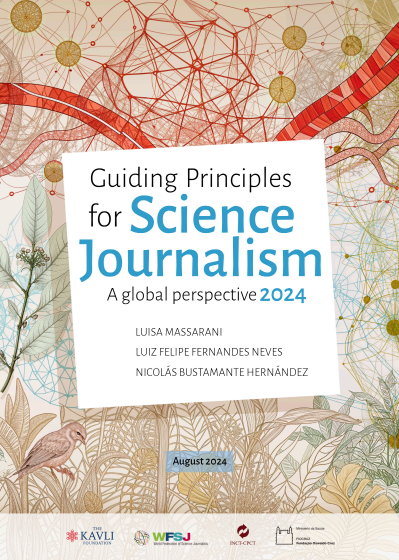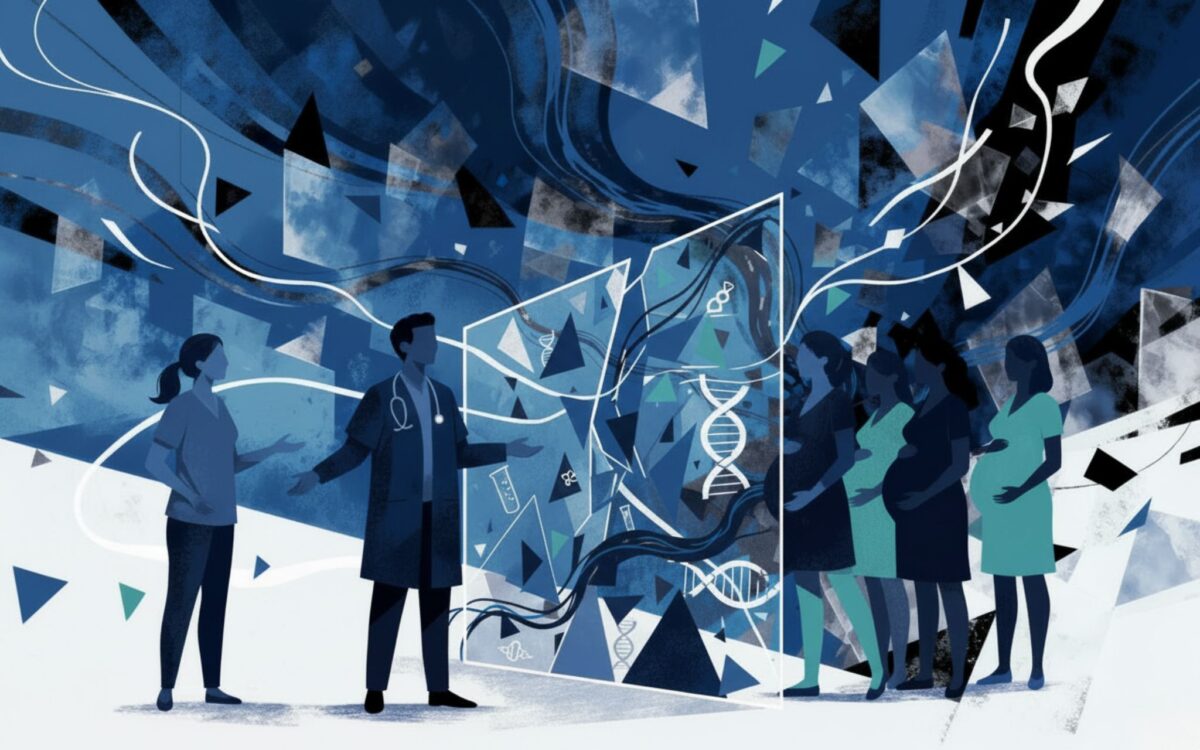 #News
#News
Science journalism and ethics: Survey reveals challenges in global coverage
Global study sheds light on how science journalists deal with ethics, uncertainties, controversies, and responsibilities in the communication of scientific discoveries
 Science journalists around the world face the ethical challenges of balancing accuracy, neutrality, and accountability while covering complex topics such as vaccines and climate change | Image: Shutterstock
Science journalists around the world face the ethical challenges of balancing accuracy, neutrality, and accountability while covering complex topics such as vaccines and climate change | Image: Shutterstock
Science journalists around the world believe that research results should not be presented as absolute certainties but as provisional and subject to review. This is one of the conclusions of a study by the World Federation of Science Journalists (WFSJ) and the Brazilian National Institute of Public Communication of Science and Technology (INCT-CPCT), linked to the Oswaldo Cruz Foundation (FIOCRUZ).
The survey heard from 505 journalists from 82 countries (including Brazil) between March and July 2022. Participants answered a questionnaire about professional ethics and topics such as neutrality, scientific uncertainties, fraud, retractions, and the embargo system, which allows for early access to papers that have not yet been published.
Uncertainties and neutrality
For 74% of respondents, scientific discoveries should be treated as temporary and subject to future refutation. One Brazilian journalist highlighted:
“There is no official truth in science; the search for any conceivable approach to truth demands a context of free inquiry.”
Regarding coverage of new vaccines, the majority of journalists from Latin America (59%), Europe and Russia (67%), and North America (89%) said that reporting should prioritize sources that support vaccination as a preventive measure.
“Vaccination for disease prevention is so effective that to cast doubt on that overall effectiveness is irresponsible,” said a journalist from Australia. “That said, science journalists should report responsibly on individual vaccines, including to address the balance of efficacy versus side effects and risks.”
Regarding climate change coverage, 66% of respondents said they prioritize sources that attribute the phenomenon to human activity.
In contrast, journalists from sub-Saharan Africa (80%) and North Africa and the Middle East (64%) said that they seek a greater balance, including sources that question the relationship between climate change and human activities.

Fraud and retractions
When asked about retractions (when scientific articles are withdrawn after publication due to fraud or errors), 65% of journalists said they would report that an article they covered had been retracted, either by updating their original report or by adding an editorial note.
However, 21% stated that they would only do so in cases of serious fraud.
Furthermore, 80% of respondents said that journalists should cover cases of scientists accused of fraud, especially if they are later found innocent.
“Whoever reported the fraud in the first place should follow it up and inform their audience about the development,” said a journalist from Spain.
“Journalism is not Twitter [now X], where it seems that there is no responsibility for what is said. The journalist must be responsible for what he says, be honest in order to be fair to those who are being judged,” emphasized the Spanish journalist.
See the main highlights of the survey below (click on the headings below to learn more):
Profile of the survey participants
-
Gender and age range
-
- 53% of participants identified as women and 45% as men.
- A balanced age range: 25–34 (22%), 35–44 (28%), 45–54 (25%), and over 54 (22%).
-
Academic background
-
- 52% have a degree in journalism/communication.
- Many have master’s degrees (44%) and PhDs (19%), especially in Europe/Russia and Asia/Pacific.
-
Professional experience
-
- 36% have more than 16 years of experience.
- In regions such as sub-Saharan and Southern Africa, 37% have spent less than five years in the field.
Professional practices
-
Primary role
-
- 38% see their role as “to inform,” followed by “to explain science” (28%).
- “To promote science” is the most commonly cited role in North Africa and the Middle East (59%).
-
Occupation
-
- 55% said that science journalism is their main occupation.
- Freelancers are the majority in parts of Africa and the Middle East.
-
Publication media
-
- Most common: websites (69%) and social media (56%).
- Least common: events in museums (43%) and television (38%).
Ethics in journalism
-
Neutrality
-
- 57% believe that journalists can be neutral; in Latin America, 48% disagree.
-
Use of sources
-
- 73% prioritize the most prominent scientists in the field.
- In the US/Canada, 67% seek gender balance in sources.
-
Material review
-
- 63% send material to scientists for review in complex cases.
- In the US/Canada, 32% never ask for their text to be reviewed before publication.
Coverage of controversial topics
-
Vaccines
-
- The majority in Europe, Asia, and Latin America support prioritizing pro-vaccination sources.
- In Africa, there is a greater search for balance between the pros and cons.
-
Climate change
-
- 66% prioritize sources that associate the phenomenon with anthropogenic causes.
- In Africa, there is a greater tendency to seek a balance of perspectives.
-
Fraud and retractions
-
- 65% report on subsequent retractions; in North Africa and the Middle East, many only do so in serious cases, such as fraud.
- 80% follow up on fraud cases until they are resolved.
Challenges and ethical issues
-
Biggest problems
-
- Low pay (63%) and fake news (56%) lead worldwide.
- In Latin America, the lack of editorial freedom (45%) is also a concern.
-
Receiving gifts/benefits
-
- 37% accept gifts in some situations; 27% consider it unacceptable.
-
Funding declarations
-
- 74% say journalists should declare sources of funding.
-
Science journalism associations
-
- 72% said there are science associations in their countries, but 45% do not know if they have codes of ethics.
*
This article may be republished online under the CC-BY-NC-ND Creative Commons license.
The text must not be edited and the author(s) and source (Science Arena) must be credited.


